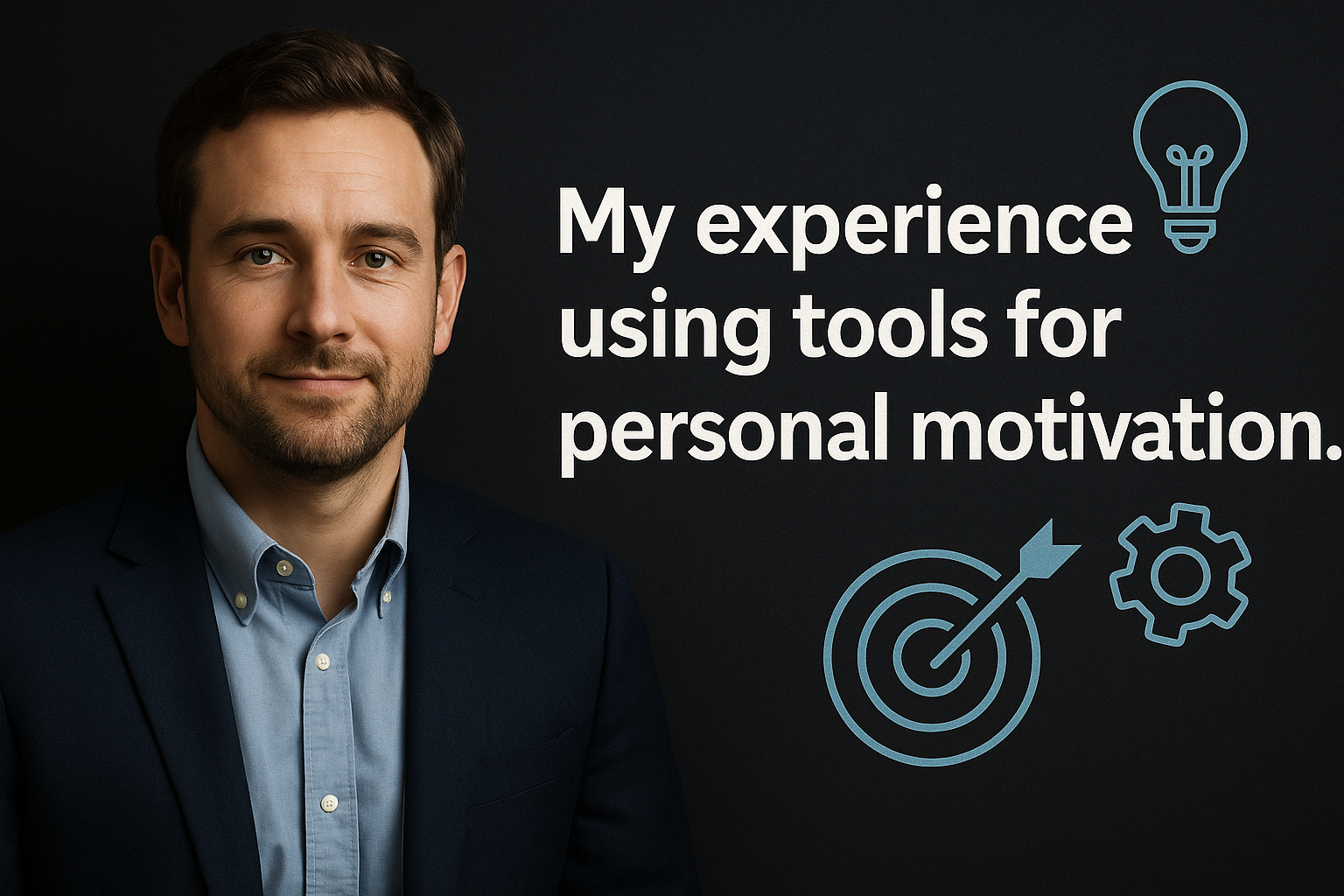By Christopher Wright
Introduction
Personal motivation is not a fixed trait. It’s a skill, a muscle we can train, and a system we can build into our daily lives. Over the years, I’ve experimented with dozens of tools, techniques, and frameworks—some failed miserably, while others became cornerstones of my routine. In this article, I want to share my personal experience with tools for personal motivation, structured into actionable insights. My hope is that you can find practical inspiration for your own journey.
1. Understanding the Foundations of Motivation
Before diving into tools, it’s important to grasp what motivation is and why it fluctuates.
- Intrinsic vs Extrinsic Motivation: I learned that relying solely on rewards (money, recognition) leads to burnout. Intrinsic motivation—doing something because it matters to me—proved far more sustainable.
- The Role of Habits: Motivation is unreliable if we treat it as a feeling. Building habits makes motivation almost automatic.
- Energy Management: I discovered that motivation is not just mental—it’s physical. Sleep, diet, and exercise directly affect drive.
2. Journaling as a Tool for Clarity
I started journaling reluctantly, but it quickly became one of my most powerful tools.
- Morning Pages: Writing freely for 10 minutes every morning clears mental clutter.
- Reflection Questions: At the end of the day, I ask: What did I achieve? What could I do better tomorrow?
- Benefits: Journaling improved my self-awareness and helped me spot patterns in motivation dips.
3. Goal-Setting Frameworks That Worked
I experimented with multiple frameworks, but three stood out:
- SMART Goals: Specific, Measurable, Achievable, Relevant, Time-bound. This kept my objectives concrete.
- OKRs (Objectives and Key Results): Helped me align personal goals with professional ones.
- The 12-Week Year: Instead of planning annually, I began working in 12-week cycles. The shorter timeline created urgency and focus.
4. Digital Tools for Accountability
Technology played a massive role in my progress.
- Habit Tracking Apps: I used Habitica and Streaks to gamify progress.
- Task Managers: Todoist became my second brain—breaking large goals into manageable steps.
- Time-Blocking Tools: Google Calendar + Pomodoro Timer created structured work sessions.
5. Visualization and Vision Boards
Skeptical at first, I underestimated visualization. Over time, it became indispensable.
- Vision Board: I created a board with images representing goals (financial freedom, health, family). It anchored me emotionally.
- Visualization Practice: Spending 5 minutes daily imagining myself achieving my goals gave me an emotional boost.
- Result: I noticed improved consistency, especially on hard days.
6. The Role of Community and Mentorship
No tool can replace human support.
- Mastermind Groups: I joined a group of like-minded professionals, where we shared wins and struggles.
- Accountability Partner: Weekly check-ins with a mentor forced me to stay on track.
- Social Media Detox: Ironically, removing some “tools” boosted my focus. Cutting distractions raised my motivation levels naturally.
7. Tracking Progress: The Motivation Multiplier
One of the greatest lessons I learned was: progress fuels motivation.
- Weekly Reviews: Every Sunday, I review accomplishments vs. goals.
- Metrics: Fitness (miles run), finance (savings), productivity (deep work hours).
- Celebration Rituals: I reward myself for small wins—simple things like a favorite coffee or a short trip.
8. Resilience and Reframing Failure
Not every tool worked. Some backfired. I reframed these as data points.
- Failure Logs: I kept a record of failed attempts, noting why they didn’t work.
- Reframing: Instead of “I failed,” I began asking, “What did I learn?”
- Outcome: This shifted my mindset from guilt to growth.
9. Building a Personal Motivation System
Eventually, I created a hybrid system that works for me:
- Morning Routine: Journaling, visualization, short workout.
- Daily System: Time-blocked tasks, Pomodoro focus sessions.
- Weekly System: Reviews, goal recalibration, community check-in.
- Quarterly System: 12-week year cycle, reflection, reset.
This system wasn’t built overnight. It was the result of years of experimentation.
10. Tools That Didn’t Work for Me
It’s just as important to acknowledge what didn’t work:
- Rigid Hour-by-Hour Planners: Too much structure killed creativity.
- Overloading with Apps: At one point, I was using 8 different apps—overwhelming.
- Motivational Quotes Alone: Inspiration without action left me stagnant.
Conclusion: My Biggest Lesson
Motivation isn’t a gift—it’s a system. The right tools are amplifiers, but they only work if you commit to consistent use. My personal experience taught me that motivation thrives on clarity, progress, accountability, and energy management.
Today, when people ask me how I stay motivated, I don’t point to a single app or book. I point to my system. And I encourage others to experiment, fail, adjust, and build their own.

